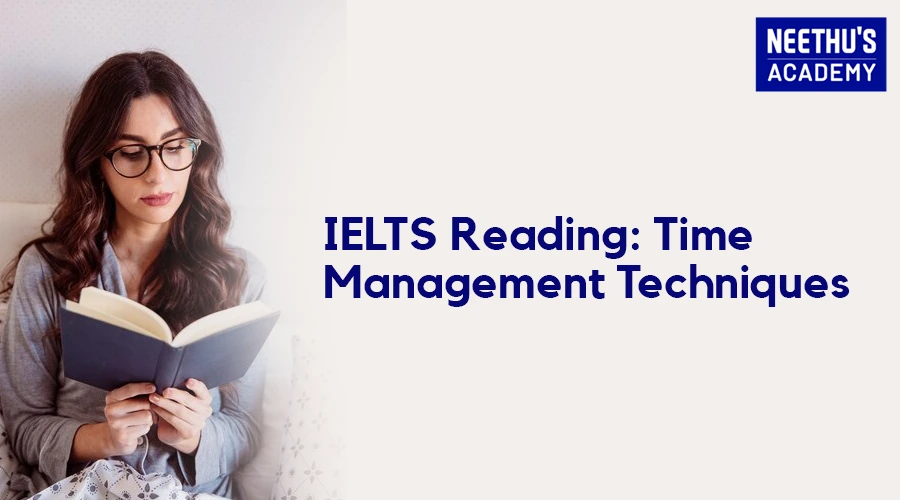Top IELTS Speaking Part 2 Tips: Mastering the Cue Card Section
Preparation for the IELTS Speaking Test is exciting and a bit stressful, especially when referring to part 2, popularly known as the “Cue Card” part. This is where you would be presenting the ability to speak on a specific topic for a few minutes. You would be tested not only for your vocabulary but also for fluency, coherence, and creativity. You have to construct your thoughts, clear your speech, and provide a reply to the examiner within just one minute of the time you were given preparation time.
In this blog, we will discuss the most important tips and strategies for IELTS Speaking Part 2. This will be about preparing your response for the IELTS cue card topic. With these techniques you’ll discover how to approach any given IELTS cue card topic with confidence, setting you up more successfully to improve your overall performance and bringing you closer to your IELTS goal.
Understanding IELTS Speaking Part 2
The second section of the IELTS Speaking Test is a cue card with the topic and some prompts to guide your response. You have one minute to think, and then you should speak about the topic for approximately two minutes. The examiner is carefully marking fluency, coherence, vocabulary and grammatical accuracy.
The bottom line is that you communicate your thoughts clearly, on the topic, and effectively in English. Now, let’s talk about some crucial strategies for preparing cue cards for IELTS, which will be fruitful for great performance in the speaking section of the IELTS test.
Key IELTS Speaking Part 2 Tips
Understand the format of the Cue Card
The Cue cards have a topic along with 3-4 questions or statements that will lead you to your answer.
For example, a topic on a Cue card may be “Describe a memorable holiday”; the questions may be where you went, what you did, and why it is/was memorable.
Respond to all of the questions written on the card focusing on storytelling.
Make use of your preparation time
You have only 1 minute to prepare. Focus on what you must write down to get the gist down. focus on keywords rather than sentences. This will help you not to read off from your notes, and keep the ideas straight.
Timed practice for planning in such a short period would make you feel confident and sure of yourself.
Start with a Short Introduction
Begin with a very plain introductory sentence. If you are required to write an unforgettable holiday, start with: “One of the most memorable holidays I have ever had was in.”
This only gives you a second to compose yourself while giving the examiner a clear introduction to your topic.
Expand Your Ideas Using Examples and Details
For every statement on the cue card, expand using specific examples so that your answer will be detailed and interesting
Use sensory experiences (what you saw, heard, felt) or personal feelings regarding the topic so as to make it deeper
More details can broaden your ideas, showing your vocabulary and adding coherence to your response.
Practice Smooth Transitions Between Ideas
Use transitional phrases, such as “for instance,” “in addition,” “another reason is,” or “that reminds me of…” to keep the flow of your answer smooth.
This will cause your answer to sound fluid, without awkward pauses or abrupt transitions.
Prepare for Common IELTS Cue Card Topics
Be aware of the common IELTS cue card topics that have popular subjects like:
- Describing a memorable person
- Talking about an interesting hobby
- Describing a special place you visited
- Discussing an accomplishment
Answering such questions in practice will give you the vocabulary and make you confident to answer once you take the test.
Don’t Rely on Memorized Answers
Memorized answers make you sound not so natural, and examiners have been trained to catch such responses. you should learn the ability to frame an answer as naturally as possible.
You will be flexible if the topic is unexpected with spontaneous responses.
Strategies for IELTS Cue Card Preparation
Framework for Different Topics
A simple framework can easily get you onto different cue card topics. For instance, you can arrange your answer in the following forms:
Introduction: Briefly introduce your answer.
Description: Describe the main subject (person, place or event).
Personal Experience: Add details and examples to make it relatable.
Conclusion: Provide a closing statement or reflection.
Develop a list of Cue Card IELTS Ideas
Though you never know what they will ask you, preparation of some general phrases and vocabulary on general topics will surely give you a boost of confidence. For example, think of the specific vocabulary for:
Travel and holidays
Hobbies and interests
Family and friends
Work or school experiences
Use Specific Vocabulary Lists
Boost your vocabulary by building on themes that crop up commonly in cue card topics. Here are a few examples:
For travel-related topics: use words like “destination,” “scenery,” “adventure,” “cultural exchange,” and “memorable journey.”
For hobbies and interests: Use phrases like “passionate about,” “skillful,” “relaxation,” “enjoyable pastime,” and “sense of achievement.”
For family and friends: Use words like “bond,” “supportive,” “memorable moments,” “trust,” and “childhood memories.”
These words will help you to communicate your ideas fluently on cue card topics and speak more naturally.
How to Improve Your IELTS Speaking Part 2 Performance
Record and Review Your Practice Responses
Recording oneself will help discover lapses in pronunciation, fluency, and coherence
The repeated use of filler words like “um” or “uh” indicates areas for improvement toward a silky-smooth delivery
Seek Out a Native Speaker or Tutor to Give You Feedback
Practicing with someone who can give you constructive feedback on your fluency, grammar, or vocabulary is invaluable.
If possible, find an IELTS teacher who can provide you with a testing environment and give you point-by-point feedback.
Build Your Vocab
The more vocabulary you know, the better your ability to express yourself wherein there will be varied topics that would be discussed.
Create flashcards of vocab on cue card topics and practice using these in sentences.
Practice Speaking on Different Topics Daily
Set a daily goal to speak randomly on some topics for 1-2 minutes. This habit will make you quick thinker and a hesitation-free speaker.
The more you get used to speaking spontaneously, the more you are likely to perform in the actual exam.
Use Specific IELTS Cue Card Ideas as a Practice Material
Answering Sample Answers for different Cue Card Topics can prove to be very helpful. Practice on topics like:
Name a book that affected you. Provide the title, genre, dominant themes, and what made it impactful.
Write about a new skill you learned. What is it? What were some ways you learned it? How is the skill helpful to you now?
Write about an enjoyable family gathering. Who was there? What did you do? What made it special?
If a student familiarizes himself with these specific Cue Card IELTS ideas, he will easily be able to respond rapidly in the actual test.
Common IELTS Speaking Part 2 Mistakes to Avoid
Overpreparation
Spend your preparation time wisely to worry about a simple outline rather than going over every minute detail. Overpreparation begets tension and will make your speaking bad.
Speaking Too Fast
You tend to run with nervousness. Keep an average tempo so that the audience may hear you. Speaking fast may result in coherence dropping or grammatical mistakes.
Disregarding the Prompt
The prompts there are to structure your response, so you should answer all of them in a small way to ensure creating an integrative response.
Out of Stuff to Say
If you happen to finish early, expand on one of the prompts or share a related story to fill the time. Adding personal reflections or thoughts can also help.
Best IELTS and OET Coaching Center In Kerala
Neethu’s Academy stands out as one of Kerala’s top-tier coaching centers for IELTS and OET preparation, known for its high success rates and individualized approach. With a team of skilled instructors, the academy tailors study plans to meet each student’s unique needs, focusing on both strengths and areas for improvement.
Best IELTS Coaching center in Ernakulam
To the question of which is the best IELTS coaching center in Kerala, the answer that comes into our mind is Neethu’s Academy, providing students with thorough preparation and best practice. With expert instructors and personalized training with proven teaching methods, Neethu’s Academy meets the needs to achieve the best score success in IELTS. Courses include IELTS Academic and General Training, which focuses specifically on the needs of each student. This way, the academy ensures the students get focused attention through practicing sessions and keeps the students confident enough to scale all aspects of the IELTS test. Thus, Neethu’s Academy is a good option for anyone who wants to score their desired level in IELTS and clear international tests.
Conclusion
Mastering IELTS Speaking Part 2, or the cue card section, requires practice, strategy, and confidence. Learn familiar common IELTS cue card topics by developing structured responses and practicing every day. By doing so, you are sure to manage your nerves, remain focused and flexible, enhance your speaking, and also build your overall confidence.
Follow these IELTS Speaking Part 2 tips to stroll your way to getting a good score from your examiner. Good effort and constant mindful practice will definitely get you the target score on the IELTS Speaking Test!
Frequently Asked Questions





